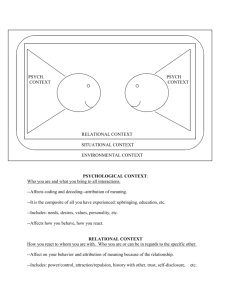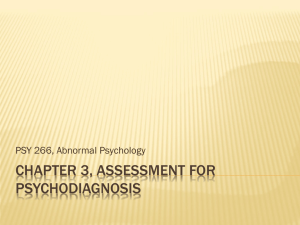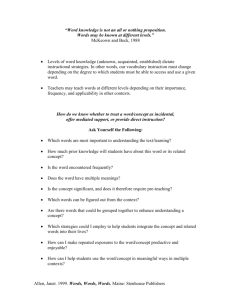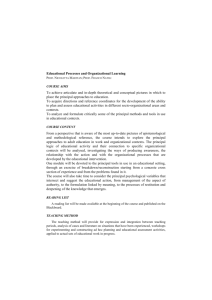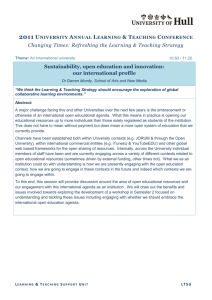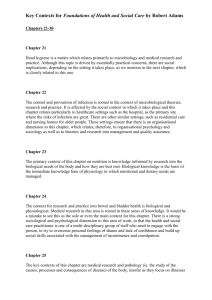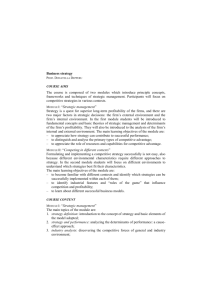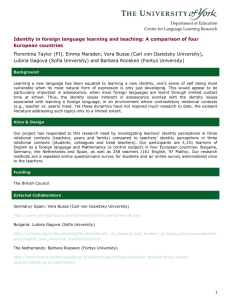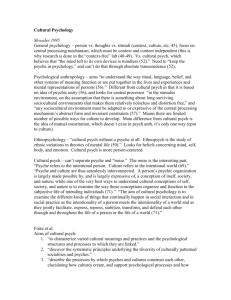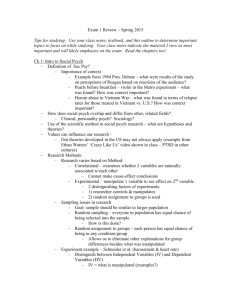Contexts Model of Interpersonal Communication
advertisement
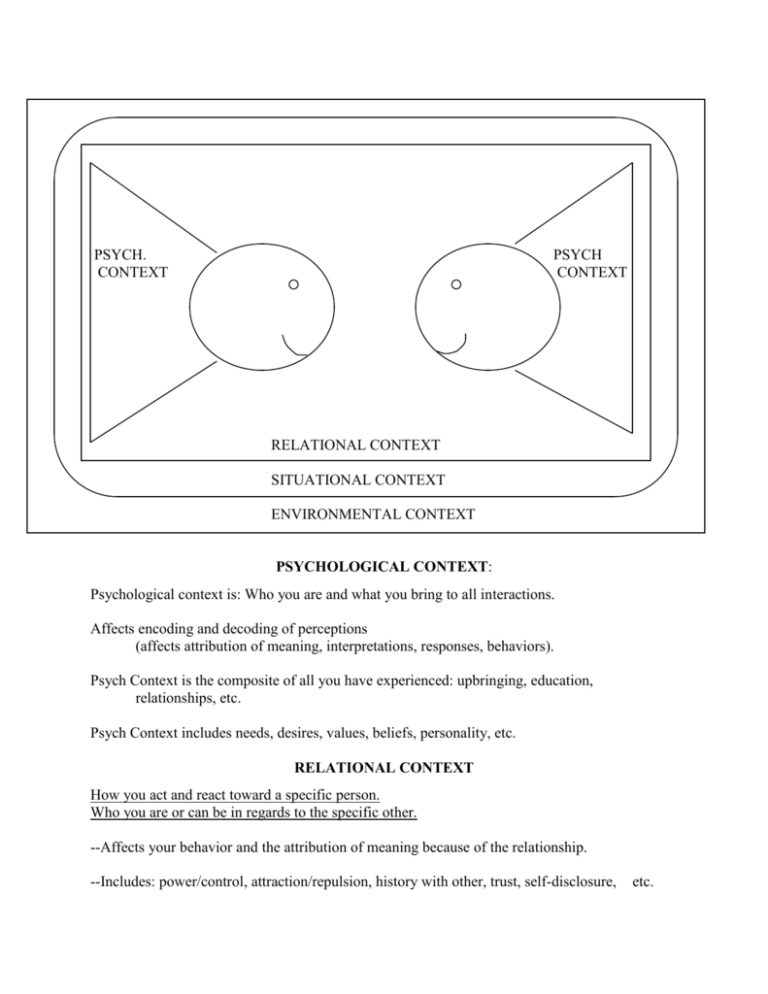
PSYCH. CONTEXT PSYCH CONTEXT RELATIONAL CONTEXT SITUATIONAL CONTEXT ENVIRONMENTAL CONTEXT PSYCHOLOGICAL CONTEXT: Psychological context is: Who you are and what you bring to all interactions. Affects encoding and decoding of perceptions (affects attribution of meaning, interpretations, responses, behaviors). Psych Context is the composite of all you have experienced: upbringing, education, relationships, etc. Psych Context includes needs, desires, values, beliefs, personality, etc. RELATIONAL CONTEXT How you act and react toward a specific person. Who you are or can be in regards to the specific other. --Affects your behavior and the attribution of meaning because of the relationship. --Includes: power/control, attraction/repulsion, history with other, trust, self-disclosure, etc. SITUATIONAL CONTEXT The reason for the interaction. What needs are being met by interacting? --Interaction of both parties’ needs and motives --Defines the purpose of the interaction. --Can change even during a given interaction. --Roles are defined by the interaction of the situation with the relationship. ENVIRONMENTAL CONTEXT The effect of external factors on the individuals and the interaction. --Includes physical surroundings (furniture, location, other people, etc.), climate (temp., humidity, etc.), time of day, day of the week, --Can be manipulated to produce effect (e.g.,rearranging furniture) CULTURAL CONTEXT The effect of a given culture on the interaction. --Actually carried by individuals within their psychological context. --We “ENACT” culture each time we interact with others. --The location/environment in which the interaction occurs usually defines which culture’s norms are followed--the appropriate behavior and meanings. PRINCIPLES OF CONTEXTS 1. All interactions occur within the contexts. 2. Each context affects behavior, the relationship, and the attribution of meaning. 3. The contexts are interactive and affect one another. 4. Both relationship partners are affected differently by the contexts. 5. Taking into account and understanding the impact of contexts can reduce misunderstanding and improve interpersonal communication effectiveness. 6. Understanding another person’s psychological context should be your goal in interpersonal relationships—it can lead to more effective and efficient interactions and relationships.
